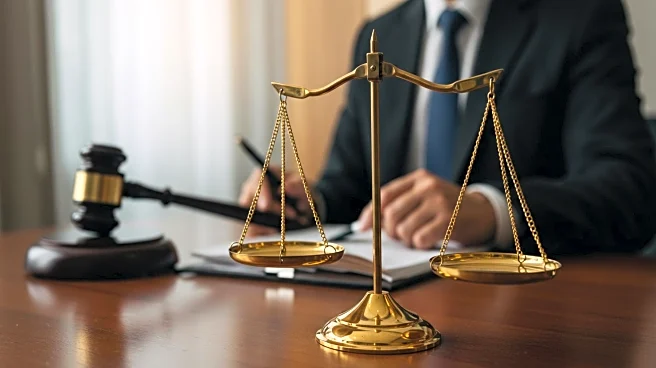What's Happening?
President Trump recently announced a 'new' census initiative, aiming to reshape the national head count. However, a cabinet official overseeing the Census Bureau has clarified that Congress holds the ultimate authority over the census process. This acknowledgment comes amidst Trump's efforts to influence the census, which plays a crucial role in determining election maps and guiding federal funding. The executive order signed by Trump also seeks to promote 'American greatness' by reshaping cultural narratives at the Smithsonian Institution, which includes 21 museums and 14 education centers.
Why It's Important?
The census is a vital tool for political representation and resource allocation in the United States. By attempting to alter the census, President Trump could impact how electoral districts are drawn and how federal funds are distributed. This move has significant implications for political power dynamics, potentially affecting states with large immigrant populations. The clarification by the cabinet official underscores the constitutional role of Congress in overseeing the census, ensuring that any changes align with legislative intent and legal frameworks.
What's Next?
The administration's efforts to reshape the census may face legal challenges and scrutiny from Congress. Lawmakers and advocacy groups are likely to respond to any perceived attempts to manipulate the census for political gain. The Smithsonian's cultural initiatives may also spark debates on national identity and historical representation. As these developments unfold, stakeholders will closely monitor the administration's actions and their compliance with established legal and procedural norms.
Beyond the Headlines
The broader implications of Trump's executive orders extend to cultural and educational institutions, potentially influencing how American history and values are portrayed. This could lead to shifts in public discourse and educational content, affecting how future generations understand national identity and heritage. The intersection of politics and culture in these initiatives highlights ongoing debates about diversity, inclusion, and the role of government in shaping societal narratives.










